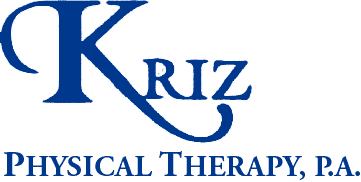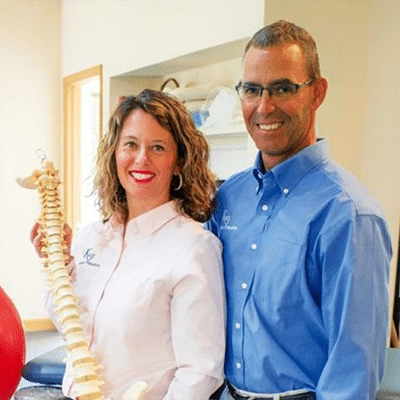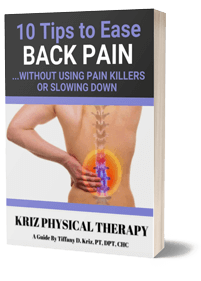If you’re an avid runner, you probably know the exhilarating feeling of hitting the pavement and letting your thoughts wander as your feet rhythmically pound the ground.
But what happens when that blissful run is followed by a sharp, persistent knee pain that just won’t quit?
Experiencing knee pain after running is a common issue, but it’s one that shouldn’t be ignored.
At Kriz Physical Therapy, we understand the frustration and limitations that knee pain after running can bring.
We’re here to dive deep into the causes of knee pain after running and, more importantly, how you can prevent it from sidelining your passion.
Whether you’re training for a marathon or just enjoy a leisurely jog, these tips will help keep you on track, pain-free.
Understanding Knee Pain After Running
First, let’s break down what could be causing that nagging knee pain after running.
There are several potential culprits, and understanding them is the first step in addressing the problem.
1. Runner’s Knee (Patellofemoral Pain Syndrome)
Runner’s knee is one of the most common causes of knee pain after running. It occurs when the cartilage under the kneecap becomes irritated.
This condition is often caused by overuse, misalignment of the kneecap, or weakness in the muscles surrounding the knee, particularly the quadriceps.
2. IT Band Syndrome
The iliotibial (IT) band runs from your hip to your knee and helps stabilize the knee during movement.
When the IT band becomes tight or inflamed, it can cause pain on the outside of the knee, especially after running.
This condition is known as IT band syndrome and is often the result of overtraining or improper stretching.
3. Patellar Tendonitis
Also known as jumper’s knee, patellar tendonitis is an inflammation of the tendon that connects your kneecap to your shinbone.
This type of knee pain after running is typically felt just below the kneecap and is often a result of repetitive stress, such as from running.
4. Meniscus Tears
The meniscus is a piece of cartilage that acts as a cushion between your thigh bone and shinbone.
A tear in the meniscus can cause knee pain, swelling, and stiffness.
Meniscus tears are often caused by sudden twisting movements, which can happen during a run.
5. Osteoarthritis
Although more common in older adults, osteoarthritis can affect runners of all ages.
This degenerative joint disease occurs when the cartilage that cushions the bones in the knee joint wears down over time, leading to pain, swelling, and reduced range of motion.
Prevention: How to Keep Knee Pain After Running at Bay
Now that you know what might be causing your knee pain after running, let’s talk about prevention.
Here are some strategies to help you avoid this common issue and keep you running smoothly:
1. Proper Warm-Up
Before you even start your run, it’s crucial to warm up your muscles and joints.
A good warm-up increases blood flow to your muscles, making them more flexible and less prone to injury.
Focus on dynamic stretches that target your legs, such as leg swings, lunges, and high knees.
A proper warm-up can make all the difference in preventing knee pain after running.
2. Strengthening Exercises
Strong muscles are essential for supporting your knees during a run.
Incorporate strength training exercises that target your quadriceps, hamstrings, glutes, and calves.
Exercises like squats, lunges, and step-ups can help build the muscle strength needed to stabilize your knees and prevent pain.
3. Choose the Right Footwear
Your shoes play a significant role in preventing knee pain after running.
Make sure you’re wearing running shoes that provide adequate support and cushioning.
If your shoes are worn out or not suited to your running style, they can contribute to knee pain.
Consider visiting a specialty running store for a gait analysis and personalized shoe recommendations.
4. Gradual Mileage Increase
One of the most common mistakes runners make is increasing their mileage too quickly.
Your body needs time to adapt to the increased stress, so be sure to follow the 10% rule:
Don’t increase your weekly mileage by more than 10%.
This gradual approach will help prevent knee pain after running by giving your muscles and joints time to adjust.
5. Focus on Running Form
Proper running form is key to preventing knee pain.
Keep your body upright, engage your core, and avoid overstriding (landing with your foot too far in front of your body).
Consider working with a running coach or physical therapist to assess and improve your form.
6. Listen to Your Body
Finally, the most important tip of all: Listen to your body.
If you start to feel knee pain after running, don’t ignore it.
Continuing to run through the pain can lead to more severe injuries.
Take a break, ice your knee, and if the pain persists, seek professional help.
When to Seek Professional Help
If you’ve tried these prevention strategies and are still experiencing knee pain after running, it might be time to consult with a professional.
At Kriz Physical Therapy, we specialize in helping runners overcome knee pain and get back to doing what they love.
We offer comprehensive assessments to identify the root cause of your pain and create a personalized treatment plan to address it.
Whether you need in-clinic care or prefer the convenience of telehealth appointments, we’re here to support your recovery.
Our team of experts will work with you to develop a program that strengthens your knees, improves your running form, and keeps you pain-free.
Don’t Let Knee Pain After Running Sideline You
Running should be a source of joy, not pain.
If you’re struggling with knee pain after running, don’t let it keep you from hitting the pavement.
Reach out to Kriz Physical Therapy today, and let’s work together to get you back on track.
Call us at (239) 992-6700 to schedule your assessment, visit our website for more information, or simply reply to this email.
So why wait?
Take the first step toward a pain-free running experience by contacting us today.
Together, we’ll keep you running strong, mile after mile.
Other Free Resources For Neck Pain
Read Our Blog – Neck Pain Exercises: Effective Routines to Stay Pain-Free
Read Our Blog – Steer Clear Of Elbow And Wrist Injuries With These Strategies
Follow us on our Kriz PT Facebook Page or Kriz PT Instagram Page




